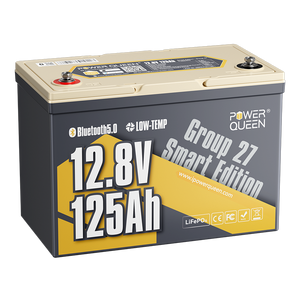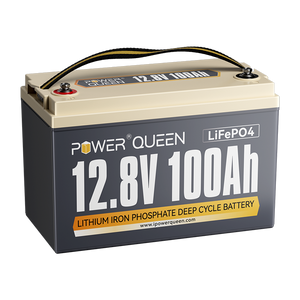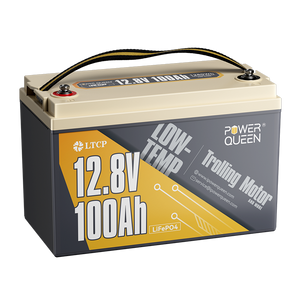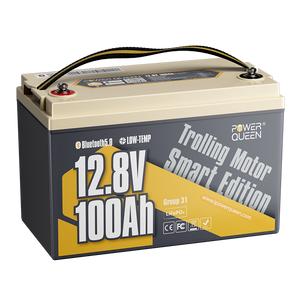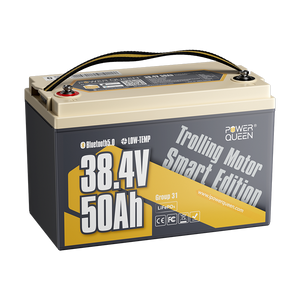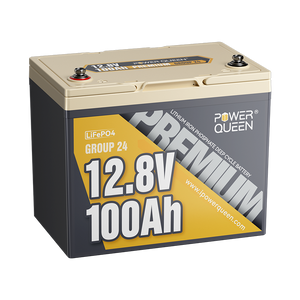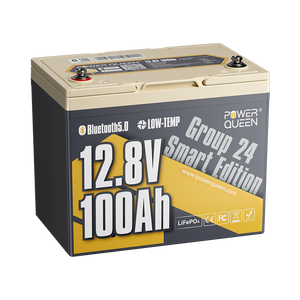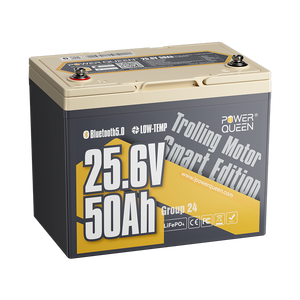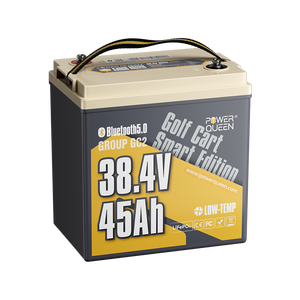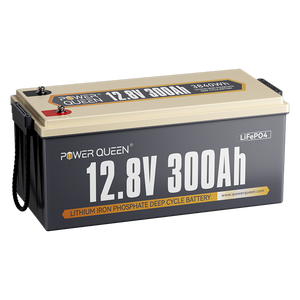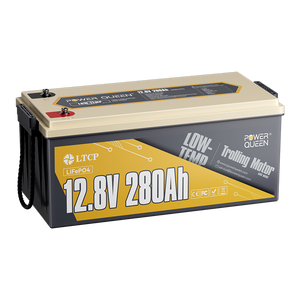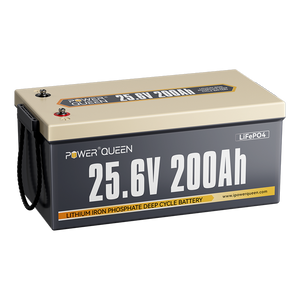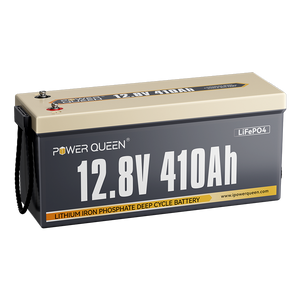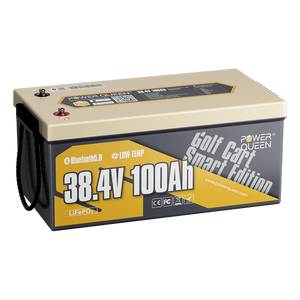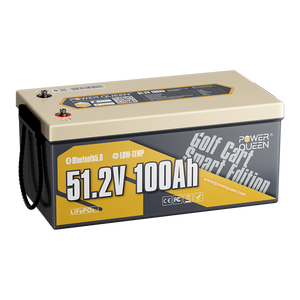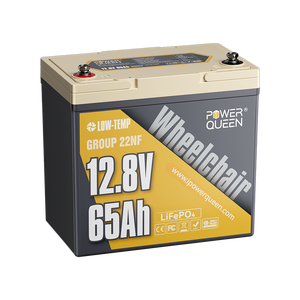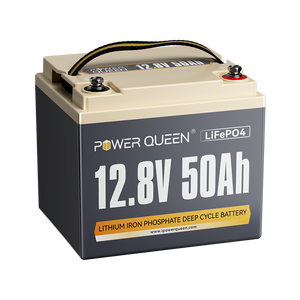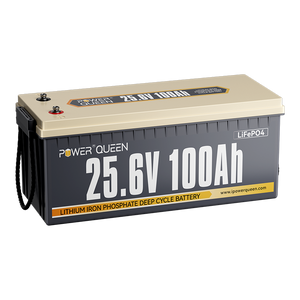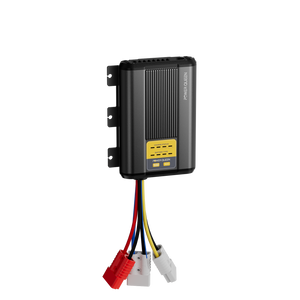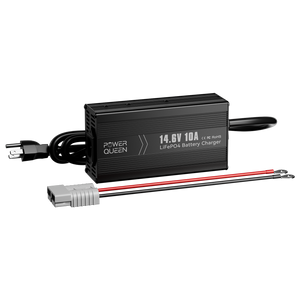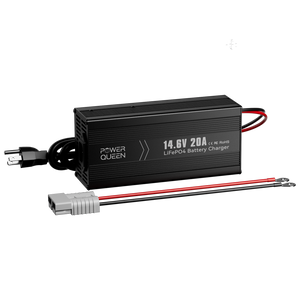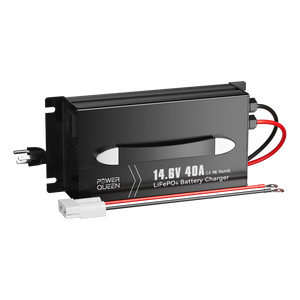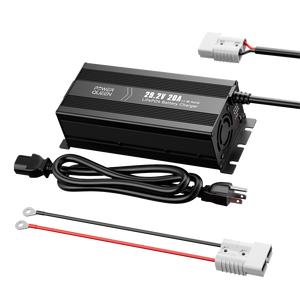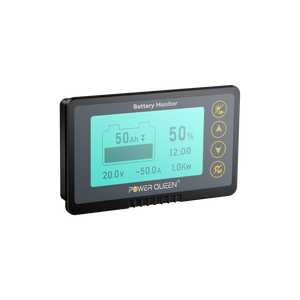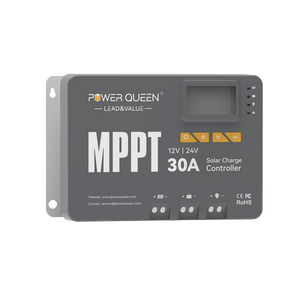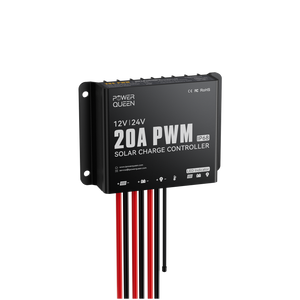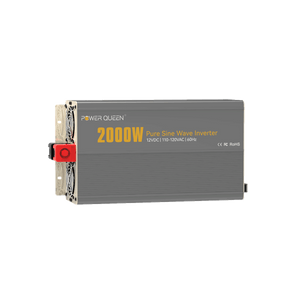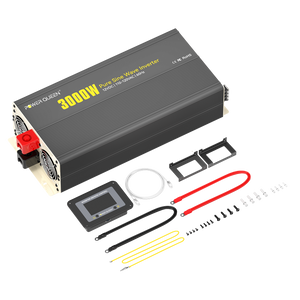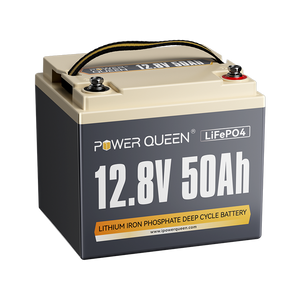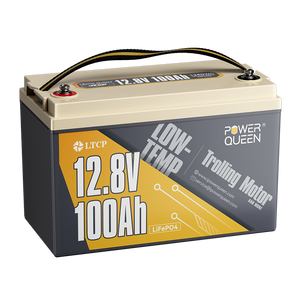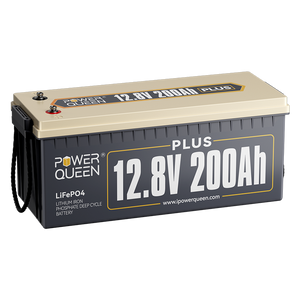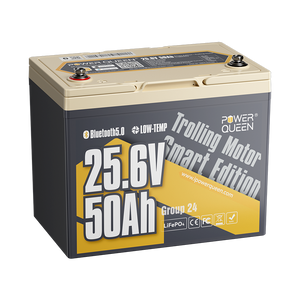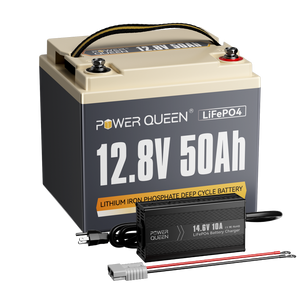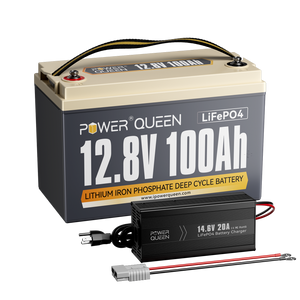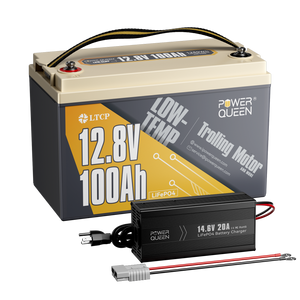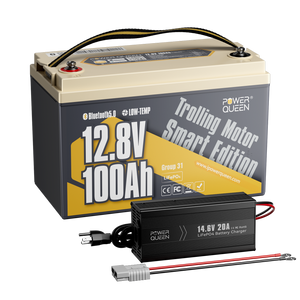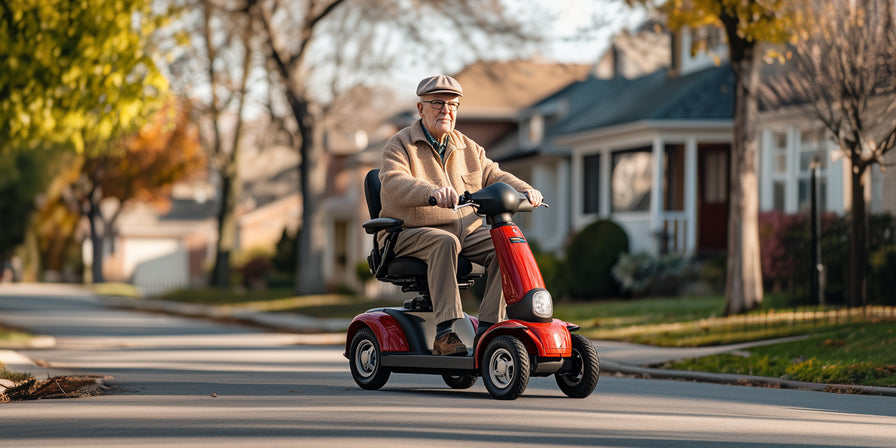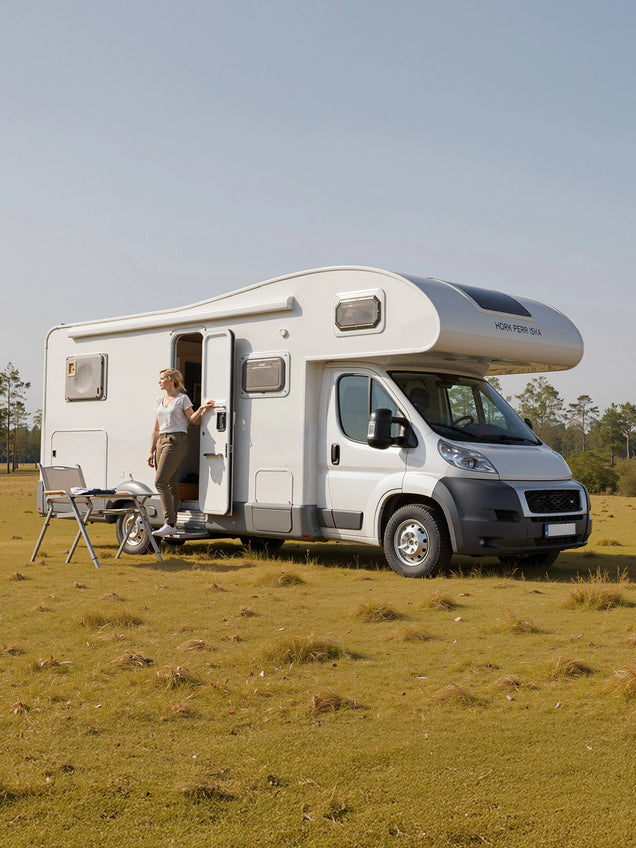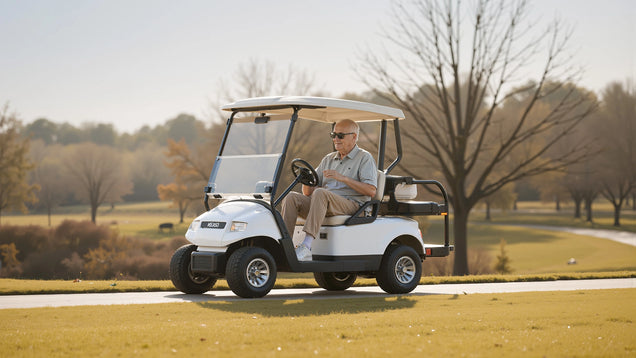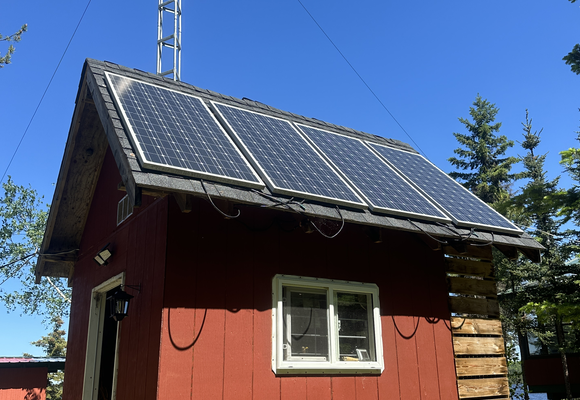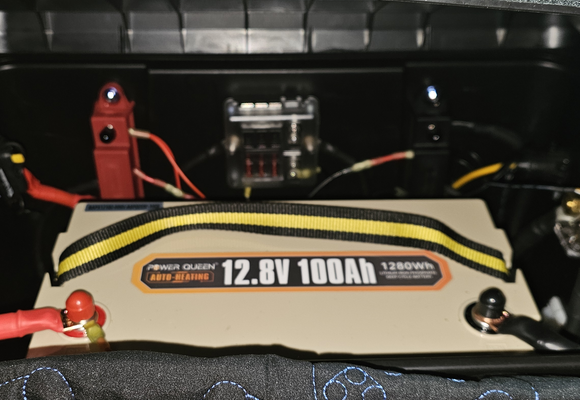How Long Do Golf Cart Batteries Last?
It could be time to think about changing the batteries if your golf cart begins to slow on the back nine.
If recharged after every usage, golf cart batteries can typically survive for many years. However, usage can affect how long they last. They can power other devices even though they are deep-cycle batteries made mainly for golf carts. A 6-volt golf cart battery cannot be used to start a car, but it can be connected to a solar panel system for backup power or to several batteries for auxiliary power in an RV. Remember that they don't function well in extremely hot or cold temperatures, just like any other lead-acid battery.
Have a great experience with the Power Queen Golf Cart Battery!
Similar to how your phone battery works (albeit it doesn't want to always be at 100%), golf cart batteries are designed to last for hours and should be fully recharged after usage.
All batteries, however, have a limited lifespan. You may be wondering how frequently you'll need to replace your golf cart batteries when you're looking for new ones.
Let's dissect some important elements.
Table of Content
- Part 1. How Long Do Golf Cart Batteries Last on Average
- Part 2. Factors Affect Golf Cart Battery’s Lifespan
- Part 3. Lead-Acid VS Lithium Golf Cart Batteries
- Part 4. Signs of a Golf Cart Battery Needs to be Replaced
- Part 5. How to Improve the Lifespan of Golf Cart Battery
- Part 6. How Long Does 100Ah Battery Last in a Golf Cart
- Part 7. Conclusion
Part 1. How Long Do Golf Cart Batteries Last on Average
When properly maintained, golf cart batteries can last four to six years on average. Make sure to keep them charged after every usage and top off the water levels if they fall while recharging to extend their lives. For convenient fluid maintenance, the majority of golf cart batteries come with detachable caps.
Depending on how they are treated before being purchased, lead-acid automobile batteries typically have a lifespan of three to five years. Due to the extensive cycling capabilities of golf cart batteries, vehicle batteries often have a shorter lifespan. A 6-volt or 8-volt golf cart battery is made with thicker plates and altered internal chemistry that allow it to be depleted down to 20% without losing its capacity to hold a charge, whereas a standard car battery can be permanently damaged if it is only drained to 75%.
A golf cart battery can last up to six years when typical wear and tear is taken into account. However, your batteries could die considerably sooner if they are not properly maintained.
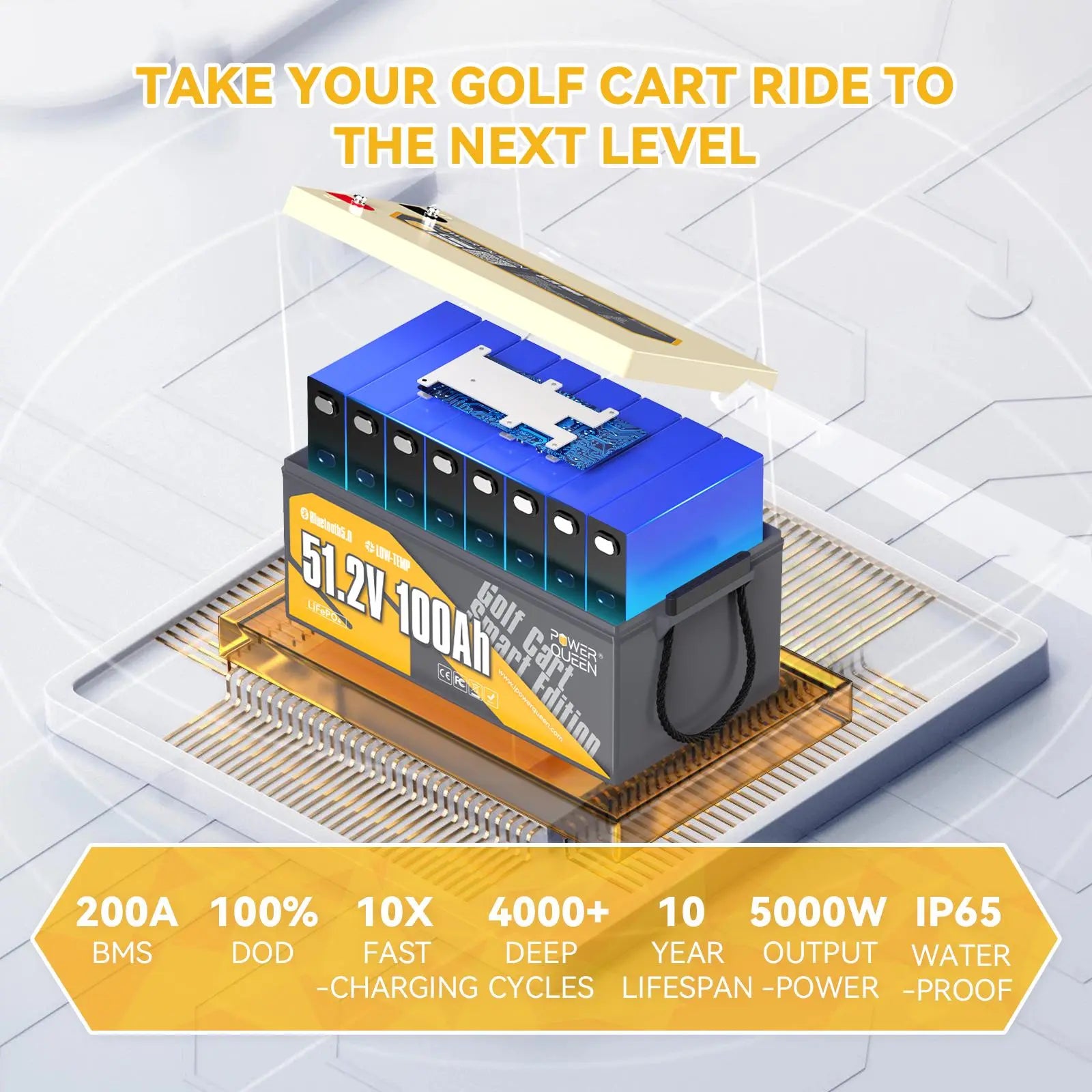
Part 2. Factors Affect Golf Cart Battery’s Lifespan
2.1 Type of Battery:
Lead-acid and lithium-ion batteries are the two main types of golf cart batteries.
Because they are less expensive, lead-acid batteries are the most often used. If properly cared for, lead-acid batteries have an average lifespan of four to six years.
Lithium-ion golf cart batteries, on the other hand, live longer—usually eight to ten years. Because of their longer lifespan, lithium-ion batteries wind up being a more economical option over time, despite their initial higher cost.
2.2 Usage Patterns:
Your golf cart's battery life can be greatly impacted by how you use it. The battery will be under more stress and have a shorter lifespan if you regularly ride your golf cart over long distances or on difficult terrain. On the other hand, the battery can last longer if the cart is used less frequently or for shorter distances. As a result, it's important to consider how much stress you place on your battery while using it.
2.3 Maintenance:
Maintaining a battery properly is essential to extending its life. Corrosion should be avoided and optimal performance can be ensured by routinely cleaning the battery and checking it for any damage. Lead-acid batteries will also survive longer if the proper water levels are maintained and the connection is tight and clean. To maximize the battery's longevity, follow the manufacturer's instructions for cleaning and maintenance procedures.
2.4 Charging Habits:
The longevity of your golf cart battery is also impacted by how you charge it. It is advised to prevent overdraining the battery and to recharge it after every use. Compared to severe discharges, shallow discharges and regular charges are better for battery health. Additionally, it's critical to choose a charger that is appropriate for the type of battery in your golf cart. Steer clear of utilizing automobile chargers or low-cost chargers as they might not offer the best charging current, which could shorten the battery's life.
In conclusion, depending on a number of variables, a golf cart battery's lifespan can vary from four to ten years. To extend battery life, you must select the appropriate battery type, maintain it frequently, modify your usage habits, and adopt good charging practices. Keep in mind that taking good care of your battery can extend its life and guarantee dependable and constant operation during all of your golf cart excursions.
Part 3. Lead-Acid VS Lithium Golf Cart Batteries
Lead-acid and lithium-ion batteries are the two main battery types used in golf carts. Each has advantages and disadvantages that may impact performance and lifespan.
3.1 Lifespan:
- Lead-Acid: 4 to 6 years
- LiFePO4 Lithium: 10 more years
Longer-lasting and more robust are lithium-ion batteries.

Power Queen 48V (51.2V) 100Ah GC2 Golf Cart Smart Lithium Battery
3.2 Weight:
- Lead-Acid: Heavier, which can impact performance.
- LiFePO4 Lithium: Lighter, enhancing speed and efficiency.
3.3 Capacity:
- Lithium-Ion: Higher energy capacity, allowing for longer distances on a single charge.
3.4 Charging Time:
- Lead-Acid: Longer charging times.
- Lithium-Ion: Faster charging, getting you back on the course sooner.
3.5 Maintenance:
- Lead-Acid: Requires regular maintenance (water levels, terminal cleaning).
- Lithium-Ion: Maintenance-free.
3.6 Cost:
- Lithium-Ion: Longevity and reduced maintenance make it more cost-effective over time, despite the higher initial cost.
3.7 Environmental Impact:
- Lithium-Ion: More recyclable and environmentally friendly, free of dangerous materials like lead.
3.8 Bluetooth Technology:
- Lead-Acid: Typically lacks smart features.
- Lithium-Ion: Bluetooth is incorporated into several versions, such as Power Queen batteries, to facilitate simple control and monitoring using smartphone apps.
| Feature | Lead-Acid Battery | Lithium Battery |
| Bluetooth Connectivity | Rarely available | Common in modern lithium batteries |
| Battery Management System (BMS) | No | Yes |
| Maintenance | Needs regular maintenance (water levels, for example) | Maintenance-free |
| Monitoring Options | External instruments (hydrometers, voltmeters) are needed | Real-time monitoring via smartphone app |
| Alerts & Warnings | None, requires manual checks | Bluetooth alerts for low charge, temperature, etc. |
| Data Tracked | Limited, manual readings | SOC, voltage, temperature, cycles, and more in real-time |
| User Experience | More hands-on, less automation | Convenient, fully automated tracking |
Part 4. Signs of a Golf Cart Battery Needs to be Replaced
Maintaining the functionality of your golf cart and preventing unexpected malfunctions need that you understand the warning signals of when the battery needs to be changed. The following are some telltale signs that your golf cart's battery needs to be changed:
4.1 Decreased Run Time
Your golf cart's battery may be failing if you observe a noticeable drop in the amount of miles it can go between charges. Shorter run periods between charges are the result of batteries' capacity declining with age.
4.2 Difficulty Holding a Charge
Your golf cart battery may be nearing the end of its life if it has trouble holding a charge or rapidly loses power even after a full charge. You can notice this if the battery drains more quickly than normal or if you need to charge it more frequently than you used to.
4.3 Slower Speeds
Your golf cart's speed capabilities may be diminished by aging batteries. Your battery cells may be deteriorating and no longer supplying enough power if you're still experiencing decreased speeds after regular use and maintenance.
4.4 Excessive Water Consumption
Regular maintenance of water levels is necessary for lead-acid batteries. Your battery may be having issues if you observe that it is using water more quickly than usual. Overuse of water may indicate internal damage or the age of the battery.
4.5 Swollen or Bulging Battery Case
Examining your golf cart's battery visually can also reveal some hints. The battery case may be enlarged or bulging, which could be a sign of internal problems or a possible malfunctioning cell. In such situations, it is best to get a new battery as soon as possible.
4.6 Battery Age
Finally, think about how old your golf cart's battery is. If the battery is older than its anticipated lifespan (4-6 years for lead-acid batteries, 8-10 years for lithium-ion batteries), it's advisable to replace it proactively to prevent unplanned failures, even if you haven't seen any problems.
Remember that these symptoms are only broad indicators and could change based on the battery type and usage circumstances. It is always advised to get advice from a specialist or contact the battery manufacturer if you are unsure about the state of your battery. The longevity of your golf cart battery depends on routine inspections, appropriate charging practices, and regular maintenance.
Part 5. How to Improve the Lifespan of Golf Cart Battery
To improve the lifespan of your golf cart battery, you can follow these tips:
- Proper charging: Pay attention to how the battery charges. Keep the battery from being overcharged or undercharged. Observe the charging process and time recommendations provided by the manufacturer.
- Use a compatible charger: Be sure to use a charger made especially for the battery in your golf cart. The battery's lifespan can be increased and damage can be prevented by using a charger that is compatible with its voltage and capacity. It is essential to use the lithium battery charger when using the lithium batteries.
- Avoid deep discharging: Prior to recharging, try to keep the battery from completely draining. Deep discharging might shorten the battery's lifespan and cause harm. Before the battery's voltage drops dangerously low, recharge it.
- Regular maintenance: Maintain the battery's cleanliness and corrosion-free connections. Check the battery frequently for indications of degeneration or damage. To get rid of any accumulated residue, use a brush and a solution of baking soda and water to clean the terminals.
- Proper storage: Make sure the battery is kept in a dry, cold place if you won't be using your golf cart for a long time. To avoid self-discharge, charge the battery to about 50% before storing it and then recharge it occasionally while storing it.
- Drive at moderate speeds: Steer clear of severe braking, acceleration, and high-speed driving as these activities might drain the battery. To lessen battery wear and tear, drive the golf cart at a modest pace.
- Avoid extreme temperatures: Excessive heat or cold might affect the battery's lifespan and performance. The golf cart should be stored and used in a moderately heated environment whenever feasible.
You can help your golf cart battery last longer and continue to operate at its best for longer by adhering to these recommendations.

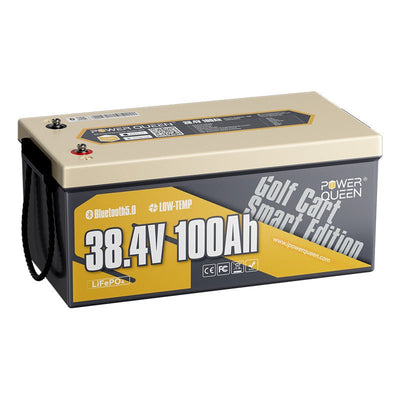

Part 6. How Long Does 100Ah Battery Last in a Golf Cart
The performance, longevity, and general user experience of your golf cart can all be greatly impacted by the battery you choose. The 100Ah (amp-hour) battery is a popular choice, but how long it will survive in a golf cart depends on a number of variables.
6.1 Understanding Battery Capacity (Ah)
Amp-hours (Ah), which represent the amount of current a battery can supply over a given time period, are used to quantify its capacity. In theory, a 100Ah battery can provide 100 amps for one hour or 10 amps for ten hours, depending on how much power the golf cart requires.
However, performance in the actual world is dependent on elements like:
- The kind of road you're traveling on
- The golf cart's total weight, including both passengers and baggage
- The efficiency and power of the motor
- The ambient temperature
- Driving habits (e.g., stop-and-go vs. steady pace)
6.2 Factors That Influence 100Ah Battery Running Time
6.2.1 Weight Load
More passengers and a heavier golf cart will strain the motor more, increasing the current demand and shortening battery life. Carts that are lighter or carry fewer passengers will consume less energy and have a longer battery life.
6.2.2 Terrain
Compared to driving on hilly or uneven terrain, where the motor requires more effort to scale slopes, driving on flat terrain uses less energy. The battery life decreases as the hills get steeper.
6.2.3 Driving Speed
The motor must use more energy at higher speeds, which causes the battery to deplete more quickly. The 100Ah battery won't last as long if you frequently drive at high speeds as opposed to more moderate ones.
6.2.4 Motor Efficiency
The lifespan of a 100Ah battery is also influenced by the type of golf cart motor. With the same battery capacity, brushless motors can provide a greater range than their brushed counterparts since they are typically more efficient.
6.2.5 Battery Type: Lead-Acid vs. Lithium
In general, a lithium battery with the same capacity (100Ah) will perform better than a lead-acid battery. This is because, in contrast to lead-acid batteries, which gradually lose efficiency as they deplete, lithium batteries maintain a more constant power output until they are almost empty.
6.3 Estimated Battery Life of a 100Ah Battery in a Golf Cart
Most electric golf carts need between 50 and 70 amps of power while they are operating normally. With this range as a guide, we can calculate a 100Ah battery's runtime as follows:
- 50 amps draw:
At this rate, a 100Ah battery will last about 2 hours (100Ah ÷ 50 amps = 2 hours).
- 70 amps draw:
With a higher current draw, the battery will last closer to 1.4 hours (100Ah ÷ 70 amps = 1.43 hours).
The 100Ah battery should last you 1.5 to 2 hours of continuous operation if you're pushing your golf cart on normal loads on moderate terrain.
Part 7. Conclusion
Compared to conventional lead acid batteries, investing in lithium golf cart batteries offers a far superior experience. To select the perfect battery, visit Power Queen Lithium Golf Cart Batteries.
